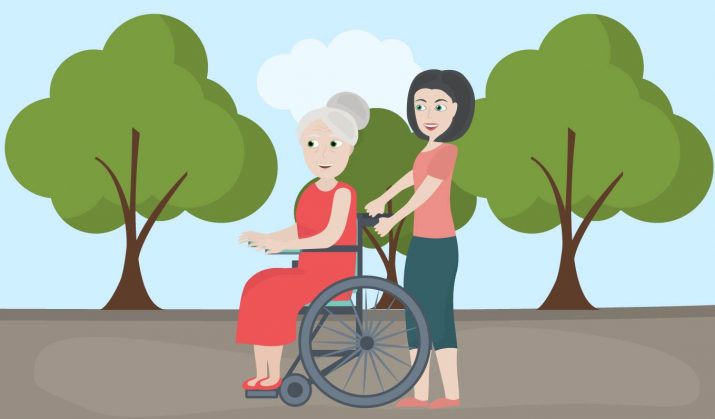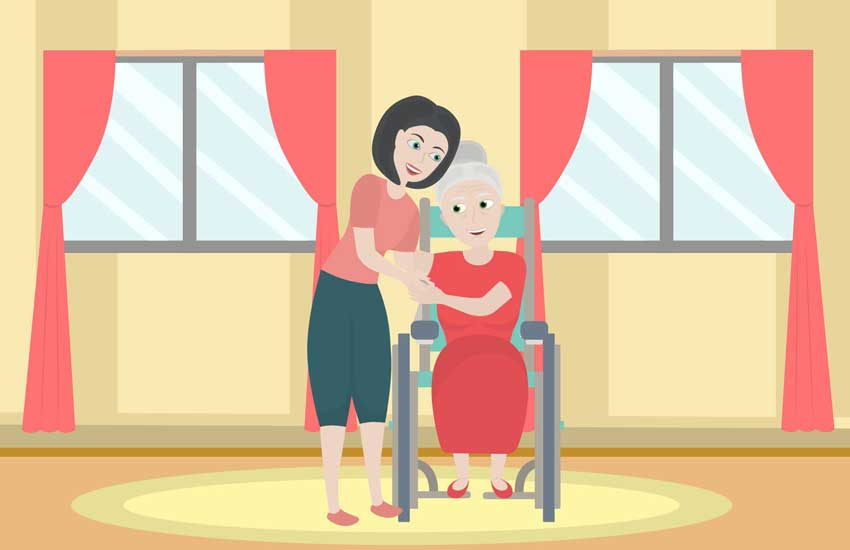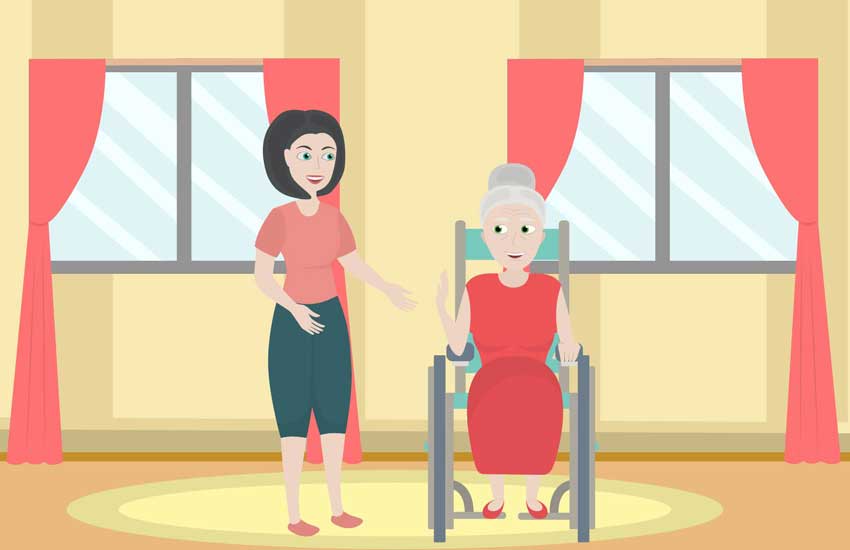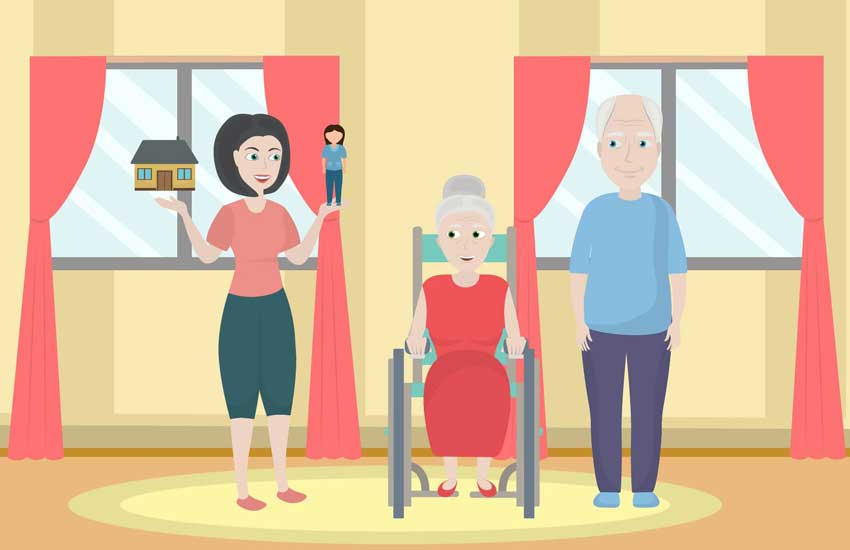12 Expert Tips: Encouraging Elderly Parents to Accept Help

Table of Contents
- 1. Provide Solutions That Allow Them to Have Control
- 2. Show Empathy
- 3. Accept Your Own Limits
- 4. Stay Positive
- 5. Support Their Autonomy
- 6. Be Mindful of Their Role Reversal
- 7. Enlist the Help of Professionals if Necessary
- 8. Let Them Feel Like They are Making Decisions
- 9. Begin with Trust
- 10. Provide Lots of Options
- 11. Encourage Them to Choose Your Help
- 12. Be Their Collaborative Partner
Harry Moody, the former director of academic affairs for AARP, once said, “Everyone wants to live longer, but no one wants to be old.” Moody’s keen observation highlights the mentality of many older persons today. The connotation of being “old” can be as equally daunting as the challenges that aging presents. While this mentality has pushed today’s seniors to be more active than ever before, it may also make them more reluctant to accept help when it is most needed.
As an adult child, you may be watching your parents enter a phase of life that can be challenging, confusing, and even scary for them. Watching your loved ones face these challenges may be difficult for you as well.
Perhaps they are struggling with mobility issues and would benefit from home modifications or mobility aid devices to ensure their safety at home, but they are unwilling to make any changes. Or maybe they could use assistance around the house, but reject the idea of having “strangers” come into their home to help.
Some older parents find it difficult to accept help from anybody, especially their own adult children. You want what is best for your parents, but what can you do when they refuse to listen to your concerns or dismiss suggestions that may help them? We asked 12 experts to share their most valuable tips to help you navigate through this process. We encourage you to try some of these tips to find what works best for you and your family.

1. Provide Solutions That Allow Them to Have Control
Fritzi Gros-Daillon, MS CAPS, CSA, SHSS – Age Safe America
“You need to determine the basis of the refusal and provide alternate solutions in which the parents have some control or choice. Many times, there are unspoken concerns, such as financial or privacy about medical conditions, that drive the refusal. The inclusion of an outside professional may be the unbiased third party opinion that can mediate a change.”
2. Show Empathy
Pamela D. Wilson, Caregiving Expert, Advocate, and Speaker – The Caring Generation
“Aging parents refuse help for many reasons: fear of the unknown, wanting to maintain control over their lives, preferring to remain independent, and not wanting to be a burden to [their] adult children. The best way to have aging parents accept help is to offer it from a place of empathy and compassion. When aging parents realize that [your] offers to help are heartfelt, instead of [an] attempt to take over or control, parents will be more comfortable accepting and asking for help.”
3. Accept Your Own Limits
Roberta Satow, Ph.D. – Roberta Satow
“Elderly parents can be stubborn and refuse help. You may have to come to terms with that and accept your own limits. It’s hard to watch people you love being destructive, but otherwise, you will also end up being self-destructive.”
4. Stay Positive
Amy Goyer, AARP Family and Caregiving Expert and Author of Struggling Life, Work, and Caregiving – AARP Family Caregiving
“Bring positive communication. An honest conversation can help.”

5. Support Their Autonomy
Bonnie Friedman, Author of Hospital Warrior: How to Get the Best Care for Your Loved One – Hospital Warrior
“One of the hardest things to accept is that elderly people who are functioning relatively well and have most of their faculties have the right to make their own decisions – even ones we think are not in their best interest. Our job, as their grown children, is to support them as best we can, lovingly present options to consider, and make ourselves available as much as possible to be there for them.”
6. Be Mindful of Their Role Reversal
Anastasia Blaszczyk, Family Caregiver, President and Founder of Aging Parents Management – Aging Parents Management
“Your parent is not refusing your help. They are having difficulty with role reversal. Your parent has always been in the role of helping and caring for you as their child – now the roles are reversed. The other reason they may refuse help is that in their mind HELP = CHANGE. They see you coming in to help them which will probably change the way they have been doing things. In order to get them to accept your help, you may find using the phrase, ‘let’s try’ or ‘let me try to help.’ Replace the word ‘help’ with the word ‘try’ and they may become more receptive.”
7. Enlist the Help of Professionals if Necessary
Dr. Melissa Henston, Psychologist, PsyD – Colorado Neuro Behavioral Health
“If the parent really rejects your help but really needs help, then calling adult protective services is not out of the question. Enlisting help from professionals can aid with the poor relationship issue. But if you have done everything and nothing is working, step back for a period and only do check-ins.”
8. Let Them Feel Like They are Making Decisions
Tami Neumann, CDCS, COO & Cathy Braxton, CDCS, CEO – Silver Dawn Training Institute
“One of the hardest realities to accept is this: Everyone has the right to make bad choices. Just because someone is in the final stages of life does not mean their rights are taken away from them. No one can feel a sense of independence in the same moment that someone else is making a decision for them.
So how do you assist, guide, and gently persuade? With patience, kindness, and creativity. Work to find a way where they feel the decision IS being made by them. Be open to guidance yourself. Be open to accepting help yourself. Your aging parent may be more willing to accept help from a different family member, a neighbor, or even a stranger. Do not take offense to WHO can help. Just keep your eyes on the prize and know that getting your parents to accept help is the ultimate win.”

9. Begin with Trust
Matt Estrade, CAPS, President, Consultant, Trainer at Care Partner Mentoring, LLC – Peace With Dementia
“If the relationship has experienced trust over the years, there’s a better chance that your aging parents will listen to your reasoning. It’s never a guarantee, but it certainly helps to begin with mutual trust.”
10. Provide Lots of Options
Toula Wootan, Caregiving Expert, Creator of Caregiver’s Coalition of Northeast Florida – Toula’s Tips for Caregivers
“This is something I advise adult children to start talking to their parents about early on – before they need a lot of help. Ask them what their desires are. If it is to age in place (in their home), let them know there will be a time when they will need help. It’s inevitable. Give them lots of options, as there are so many agencies that can help them. Again, having advice come from a professional is often easier for the parent to receive.”
11. Encourage Them to Choose Your Help
Marti Weston, Independent Health Blogger on Aging, Caregiver – As Our Parents Age
“I always point out [to my parents] that if they do not accept my help, it may be that other people, who have less connection to them, will have to make decisions for them rather than me. They always choose me.”
12. Be Their Collaborative Partner
Rhonda Caudell, RN, CCM, The Aging Parent Expert – Endless Legacy
“If they are refusing your help, it is often due to not wanting to be a burden to their adult kids and/or not appearing needy or weak to their kids. Therefore, a shift in your relationship with them is needed. This can begin by approaching a parent with love, respect for who they’ve been to you, and wanting the best future possible for them going forward. Let them know they are not a burden, everyone ages and needs some guidance, and you desire to be their collaborative partner.”
Many adult children of aging parents end up helping their parents make major decisions about their lives. Approaching your parents with respect, empathy, and understanding is a good way to begin to establish an agreement that works for everyone involved. If you are having difficulty getting your elderly parents to accept your help, remember that your roles are being reversed in a way that they may find troubling. If you are in this situation, try some of these tips to keep the lines of communication open as you navigate this challenging phase of life.
Did any of these tips from the experts help you out? Let us know in the comments below!
Related:






